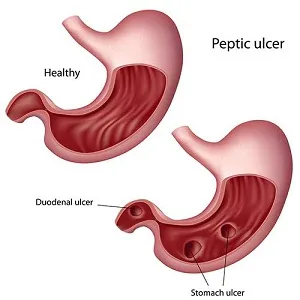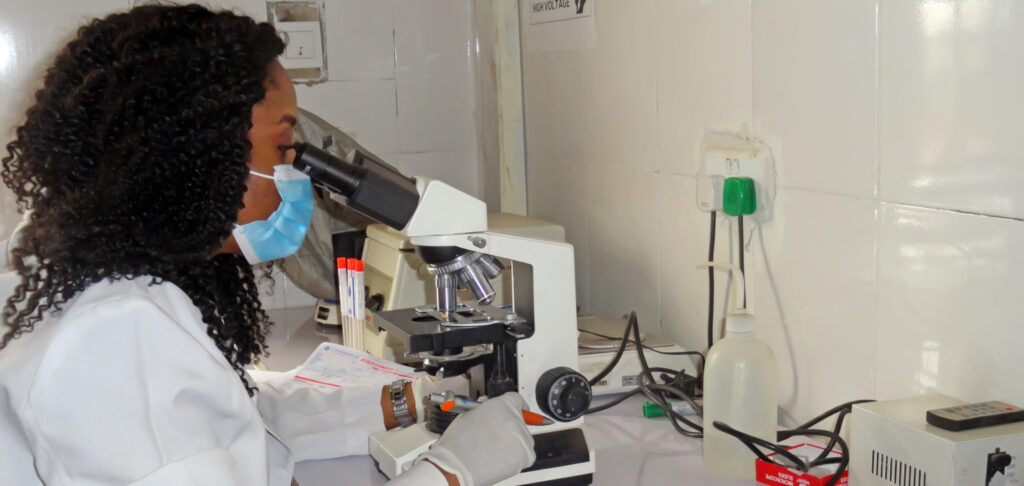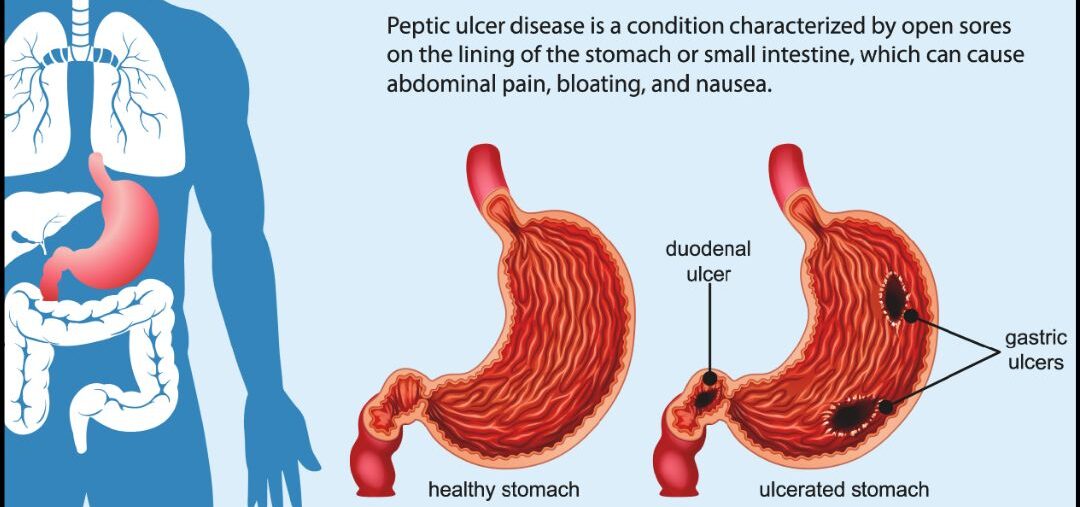- ekene
- 0 Comments
Olivia was a boisterous young lady, she was quite a hard worker and was admired for ability not to tire out easily while performing tedious tasks at work. She was mostly quite healthy and hardly ever fell ill; an enviously good immunity she seemed to possess.
She came from a meagre upbringing, her secondary education at a Government boarding school has poor access to safe drinking water, she had paved through higher education and was fortunate to land a job as a banker. Olivia usually is not a fan of breakfast as she believed it would slow her down in the morning as she went about her daily activities in the morning. As a busy person, she would eat out sometimes and had bouts of stomach upset on some occasions.
One time she had a short bout of fever, she speculated that it was malaria, self-medicated with malaria drugs and some paracetamol for the fever. The fever went away; however, a few days later she experienced loss of appetite, nausea, and a burning pain at the upper part of her abdomen just below her chest. Her family and friends had even begun to mention to her that she seemed to be losing weight, this was surprising because prior to their comments she had been eating really well and wasn’t on a diet of any sort.
The pain continued occasionally becoming stronger, sometimes she would not experience pain in her upper abdomen but a reflected pain in her chest and back, the pain even radiated to her breast and at such times she got really scared thinking it may be the onset of breast cancer.
She also experienced occasional sudden loud short-span hiccup, burping, feeling of digested food particles coming back up her throat, what bothered her most was the constant pain in her upper stomach which was aggravated by stress, certain foods.The pain got worse as her schedule at work got busy, she just know she had to see a doctor.

She was asked to do a Comprehensive Ulcer screen and her results came out positive for Helicobacter pylori… “what kind of name is Helicobater though?!”, the thought echoed in her head.. Thankfully, she was given prescriptions which helped her feel better.
No more spicy foods( her favourite), no more shawarma with “extra pepper”!!!….she shook her head.
PEPTIC ULCERS
Peptic ulcers are open sores in the lining of the digestive system in the stomach, upper part of the small intestines or oesophagus. There are basically two types of peptic ulcers
- Gastric Ulcers: These are ulcers that occur within the stomach
- Duodenal Ulcer: This occurs in the upper portion of the small intestine, most likely at the juncture between the end of the stomach and the upper portion of the small intestine.

CAUSES
- Helicobacter pylori (H. pylori): This is a bacteria that inhabits the stomach lining and tends to attach to the stomach wall. In some people,an infection with H. pylori is usually harmless, however this is responsible for most stomach ulcers.
- Non-steroidal anti-inflammatory drugs (NSAIDS): These are drugs used in relieving pain, eliminating fevers and decreasing inflammation. However, this reduces the secretion of prostaglandins and its cell protective effect on the gastric wall. Ulcers caused by NSAID may be reversed if the drug is immediately stopped.
HELICOBACTER PYLORI RELATED PEPTIC ULCER
This occurs when the bacteria called Helicobacter pylori gets into stomach and upper intestine, destroys the wall of the stomach and intestine by burrowing into it and causing sores; The bacteria burrows into the lining of the stomach where it becomes surrounded by mucus, the body’s immune cells can not reach it , thus surviving the harsh acidic condition of the stomach yet causing havoc.
- pylori usually infects a person’s stomach during childhood and may be asymptomatic. However, symptoms may develop leading to disease such as Peptic ulcers, Gastritisin some people.
INFECTION ROUTE
- pylori infection occurs mostly via faeco-oral route;consumption of food and water contaminated with the bacteria or particles of faeces of an infected person. A person may also get infected via coming in contact with saliva, vomit or stool of an infected person.
The word “muscle” comes from Latin term meaning “little mouse“, which is what Ancient Romans thought flexed bicep muscles resembled.
– NGK
PATHOGENICITY
- pylori infection is via the following pathway:
- Adherence to the cells of the stomach and survival of the gastric acid produced in the stomach.
- Avoidance and subversion of the immune system by invading depth of the stomach wall hence preventing the body’s immune system from finding and eliminating it
- Tissue damage caused by the release of proteases and certain phospholipase leading to inflammation and weakening of the stomach walls. This in turn causes the stomach to be overwhelmed by stomach acids and digestive enzymes.
SYMPTOMS
- Fever (initially, at the onset)
- A persistent ache or burning pain at the upper part of the stomach
- Loss of appetite
- Unintentional weight loss
- Nausea
- Bloating
- Frequent burping/belching
- Loud Hiccups
PREVENTION
- Practice good hand hygiene.
- Ensure that meals are properly cooked.
- Consume clean drinking water.
DIAGNOSIS
- Laboratory work-up:
- H. pylori antibody test
- H. pylori stool antigen test
- Faecal occult blood test
- Stool M/C/S ( to check for any other bacteria that could also further erode the stomach walls)
- Upper Gastro-intestinal Endoscopy
STEPS TO AVOID AGGRAVATING PEPTIC ULCERS
- Avoid spicy and oily foods.
- Eat adequate meals.
- Take meals on time.
- Reduce consumption of processed foods.
- Avoid fruits with citric acids such as citrus fruits.
- Avoid fizzy drink.
- Minimise stressful and angry situations.
- Drink lots of water.
- Stay happy and cheerful.

Treatment
- A combination therapy of 2 Antibiotics: This is prescribed by a doctor: antibiotics of choice include Clarithromycin, Amoxicillin, Metronidazole , tinidazole
- Proton-pump inhibitors: These reduce the amount of gastric acid produced by the stomach thus preventing further erosion and damage e.g Omeprazole, Lansoprazole, Esomeprazole, Rabeprazole.
- H2 receptor blocker: This blocks histamines which trigger the production of acids e.g Cimetidine
- Antacids
- pylori tests should be repeated at least 4 weeks after treatment to ascertain if the treatment got rid of the infection.
Where can I do a comprehensive ulcer screen?
This can be done at Lifebridge Medical diagnostic centre, 15A yawuri street, Garki,
Abuja.
What samples are required for a comprehensive ulcer screen?
A Blood sample and stool sample is required
Is the procedure for a laboratory comprehensive ulcer screen painful?
No, it is not painful. However, a blood draw may be slightly uncomfortable.
When can I get my results for the laboratory Comprehensive Ulcer screen?
The results can be gotten on the 3rd day after giving my blood and stool samples.
If you have been experiencing any of the above symptoms, do not delay!!! Book a consultation now or ask for a Comprehensive Peptic Ulcer screen test.
To book a consultation click here
For more info, call 07067892382
Written by
Rita Okoye
https://www.mayoclinic.org/diseases-conditions/h-pylori/diagnosis-treatment/drc-20356177
https://www.hopkinsmedicine.org/health/conditions-and-diseases/helicobacter-pylori
